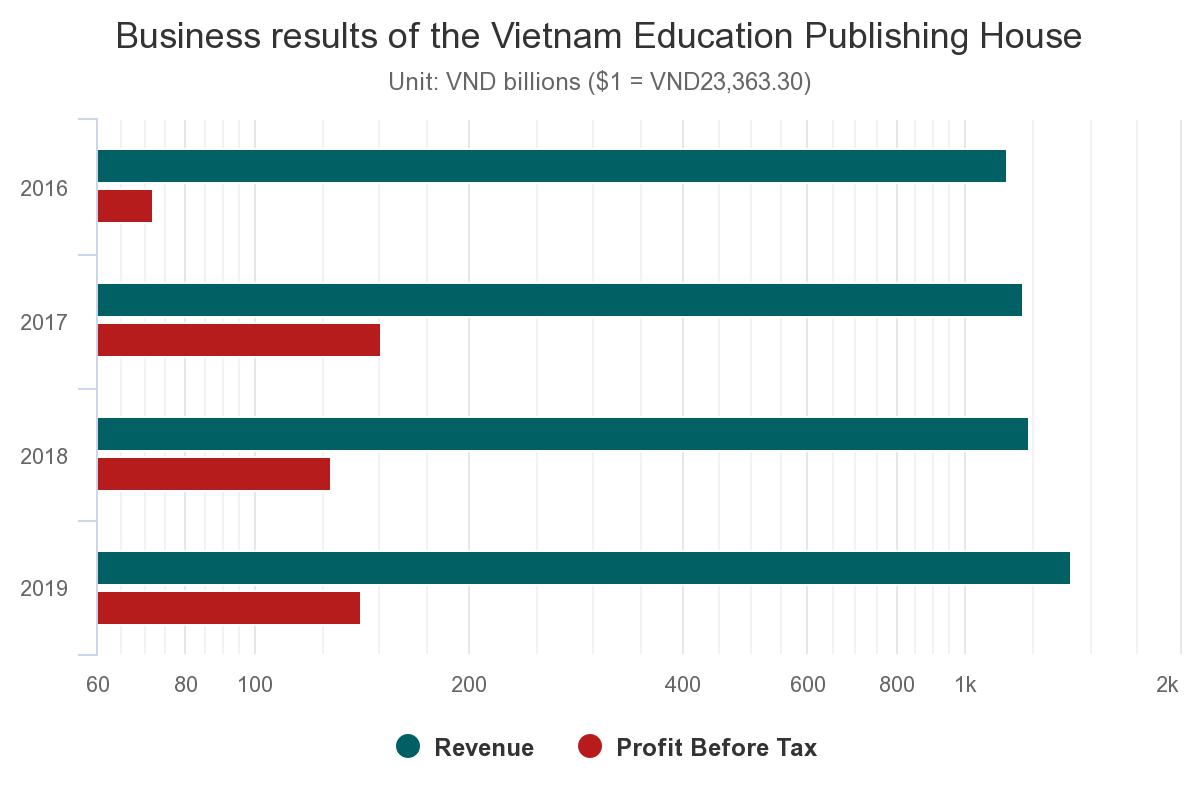Textbook publisher plans higher prices to offset costs
Wed, 03 Jul 2019 15:41:00 | Print | Email Share:

Education Publishing House. Photo acquired by VnExpress.
The Vietnam Education Publishing House expects textbook revenues to rise by $4.71 million year-on-year after raising textbook prices.
In its latest business plan, the publishing house (VEPH), which belongs to the Ministry of Education, said it plans to raise the average selling price of textbooks by VND1,100 - 1,600 (4.7 – 6.8 cents) per book for the 2019-2020 academic year.
The adjustment of textbook prices is a solution to offset costs after the company has tried kept prices stable for the last eight years, during which prices of transportation and raw materials have risen 20-25 percent, the VEPH managing board said.
In 2018, VEPH sold a total of 113 million textbooks for VND737 billion ($31.53 million), accounting for 52 percent of its total revenue.
The company forecasts revenue from this segment to rise to VND844 billion ($36.11 million) this year as a result of adjusted price rises, a 14.5 percent year-on-year increase.

However, VEPH will face more intense competition, in terms of quality, price and sales this year with the entry of private publishers. The competitors are university-owned publishers with great financial strength and investment, said management board said.
Late last year, the Ministry of Communication and Information gave licenses to four private publishing houses to compile and publish textbooks, breaking VEPH’s monopoly in the market, and raising the number of textbook publishers to five.
The new publishers are: Hanoi Pedagogy University, HCM City Pedagogy University, Hanoi National University and Hue University.
The Vietnam Education Publishing House is a one member limited company wholly owned by the state and run by the Ministry of Education. It organizes the compilation, edition, publishing, printing, and distribution of textbooks, and produces teaching and learning materials.
The company estimates that it accounted for about 80 percent of the country's book distribution market in 2017, but its market share had continuously fallen. The company has said it would try to keep its leading position with 60-70 percent market share in the coming time.
By: Phuong Dong/VnExpress
---------------------------------------------
Same category News :













